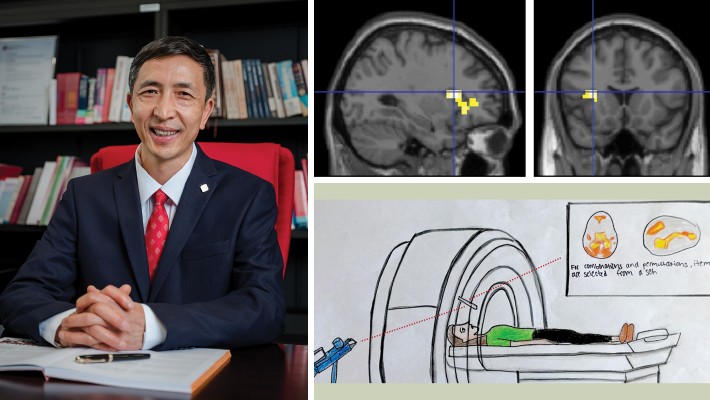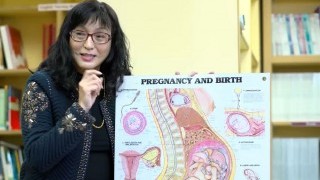How does frequent use of e-devices affect the brain in understanding complex concepts?
Students say electronic devices help their learning. Parents say digital gadgets cause distraction. What do experts say? Let’s hear it from Prof. Li Ping, PolyU’s Dean of Humanities and Chair Professor of Neurolinguistics and Bilingual Studies.
Prof. Li and his team recently conducted a study examining different brain activity patterns and individual readers’ cognitive differences and reading habits, including the use of electronic devices, on outcomes of scientific text comprehension. In the study, 51 native English speakers were invited to read expository texts of science, such as articles on how electrical circuits work, inside a Magnetic Resonance Imaging (MRI) scanner. Their eye movements and brain responses were simultaneously recorded to assess their comprehension of the contents. The participants’ reading habits and frequency in using electronic devices, such as smartphones, tablets and computers, were also surveyed.
“Participants were asked to read scientific texts because this would require them to integrate and organise information from multiple sources for a genuine understanding of the scientific concepts,” explained Prof. Li.
The study showed a negative correlation between the frequency in e-device usage and brain activities in the two brain regions, left insula and inferior frontal gyrus, that are crucial for information processing. This might suggest that the participants were not using these parts of the brain for comprehending the text and for integrating the inter-connected information to truly understand complex concepts.
Excessive use of electronic devices may impair the ability to learn scientific concepts, according to Prof. Li. Young students in particular may be more prone to the adverse effects on learning due to frequent engagement with e-devices, especially smartphones.
Published in Science Reports of Nature (11th most cited journal in the world), this study has opened new avenues by using neuroimaging and eye-tracking methods for examining the effects of e-device usage on learning and education.








